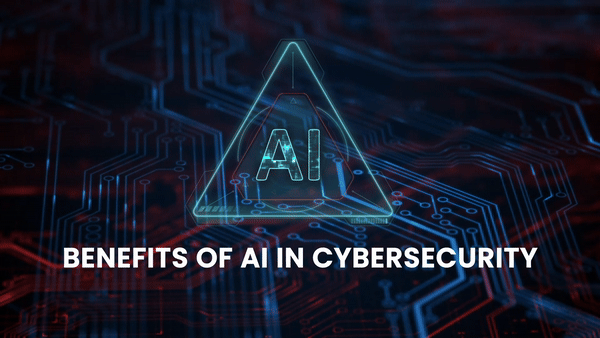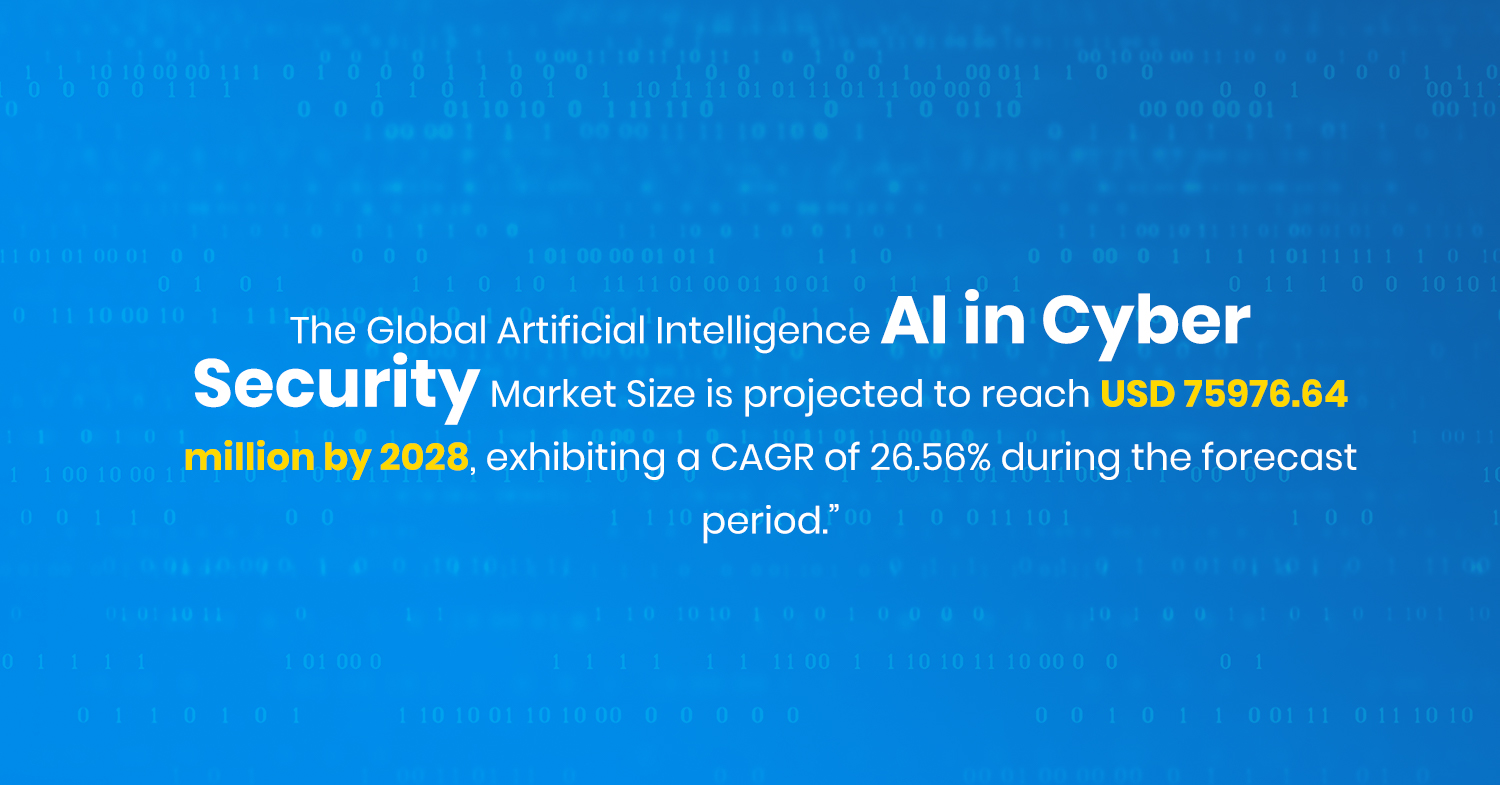6 Ways AI Reinvents the Security Landscape

The concept of Artificial Intelligence (AI) is becoming progressively integrated into business operations, with a wide range of applications utilizing AI. But not all businesses have adopted AI to the same extent. The most advanced are those in information technology and telecommunications, followed closely by the automotive industry.
Because AI is a dual-purpose, general-purpose technology, it might be both a blessing and a curse for cybersecurity. The use of AI as a sword—that is, to facilitate malicious attacks—as well as a shield—that is, to protect against them and mitigate cybersecurity risks – supports this.
In today’s business environments, there is a vast and growing cyberattack surface. Because AI and machine learning can swiftly scan billions of data sets and find a wide range of cyber dangers, from malware to dubious activity that could lead to a phishing attack, they are becoming more and more significant in the field of cybersecurity.
These systems are always learning and getting better, using information from both past and present attacks to find new kinds of attacks that could occur in the future. Therefore, evaluating and improving an organization’s cybersecurity posture calls for more than just human interaction.
Let’s first review the definitions of these two technologies and their connections.
The goal of the large discipline of computer science known as artificial intelligence, or AI, is to build intelligent machines that are capable of doing tasks that would typically require human intelligence without the need for human interaction. AI applications include machine learning, speech recognition, natural language processing, expert systems, and vision.
The goal of cybersecurity is to stop assaults, harm, and unauthorized access to devices, networks, software, and data. It is achieved using a variety of technologies, processes, and practices. Cybersecurity is also known as information technology security.
AI is useful and advantageous in many domains, including cybersecurity. AI and machine learning can help stay up with hackers, automate threat detection, and respond more quickly than traditional software-driven or manual procedures in light of today’s rapidly developing cyberattacks and rapidly proliferating device population.
Benefits of AI in Cybersecurity
Artificial Intelligence (AI) has the potential to identify hazardous acts and cyber dangers. The enormous number of new viruses that are created every week is too much for traditional software systems to handle; this is one area where artificial intelligence can truly help.
Artificial intelligence (AI) systems are being trained to recognize malware, perform pattern recognition, and identify ransomware attacks or malware even before they infect a system by utilizing sophisticated algorithms. Artificial intelligence (AI) can offer more predictive intelligence by using natural language processing to automatically select content by scanning through news, articles, and studies on cyber dangers.
According to TechRepublic, a mid-sized company receives notifications for almost 200,000 cyber events per day. This volume of attacks would be too much for the security personnel of any regular corporation. Consequently, some of these threats will cause serious network damage without being detected. Security professionals need a lot of assistance from smart equipment and cutting-edge technology like artificial intelligence (AI) in order to function efficiently and defend their organizations from cyber attacks.

This blog explores the advantages of combining AI with cybersecurity. Some of them are –
AI Is Capable of Handling Large Amounts of Data
Network activity on a company’s end is high. A typical mid-sized business has a lot of traffic. That suggests that a lot of data is shared on a daily basis between the organization and its customers. This data must be protected from malicious individuals and software.
Experts in cybersecurity can’t, however, scan every piece of data for security risks. Artificial Intelligence is the best choice for identifying dangers that masquerade as everyday tasks. It can sort through a lot of data and traffic because it is automated. AI-powered tools, like a customized proxy, can help you move data. In addition, it is capable of spotting and identifying any dangers that might be present within the confusion.
Experts in cybersecurity can’t, however, scan every piece of data for security risks. Artificial Intelligence is the best choice for identifying dangers that masquerade as everyday tasks. It can sort through a lot of data and traffic because it is automated. AI-powered tools, like a customized proxy, can help you move data. In addition, it is capable of spotting and identifying any dangers that might be present within the confusion.
Repetitive Procedures Diminish
As mentioned earlier, attackers often change their techniques. Conversely, the core security procedures remain unchanged. If you hire someone to perform these tasks, they can grow bored and put your network at risk.
AI mimics the best aspects of human nature while excluding the weaknesses, handling repetitive cybersecurity tasks that could tire your cybersecurity staff. It regularly assists in the identification and mitigation of core security threats. In order to determine whether your network has any security holes that could endanger it, it also thoroughly examines your network.
Response and Detection Times Are Improved
Identifying risks is the first stage in protecting the network of your business. It would be great if you could spot problems right away, such as faulty data. It will shield your network from damage that won’t go away. The best way to identify assaults and take immediate action is to integrate AI with cybersecurity. Artificial intelligence (AI) looks for threats throughout your entire system. AI, as opposed to people, will identify threats early and simplify your security procedures.
Protection of Authenticity
Most websites have an account system that enables visitors to log in and use services or make transactions. Certain websites need users to fill up contact forms with their personal data. As a business, you will require an additional level of protection because such a site contains sensitive material and private information.
The increased security layer will ensure your visitors are safe when using your network. AI secures authentication when a user wants to connect to their account. AI employs a range of methods for identification, including fingerprint recognition, face recognition, and CAPTCHA. The information provided by these features can be utilized to assess the validity of a log-in attempt. Hackers use brute force attacks and credential stuffing to get into business networks.
Improved Overall Security
Over time, business networks are subject to changing hazards. Every day, hackers change their tactics. This makes setting security priorities inside a company difficult. Ransomware, denial-of-service attacks, and phishing scams could all come at you at once.
These attacks are similar in power, but you have to choose which one to focus on first. Security might be challenging due to more serious risks like human error and negligence. Artificial intelligence (AI) can be implemented on your network to detect various risks and help you prioritize and stop them.
Improved Vulnerability Control
Network security in a business depends on vulnerability management. As said earlier, a normal company encounters a number of dangers frequently. It must identify, locate, and get rid of them in order to be safe.
By employing AI Investigations to analyze and evaluate current security procedures, vulnerability management may be helped. AI greatly improves your problem-solving skills by allowing you to evaluate systems more quickly than cybersecurity specialists.

In Summary
Artificial intelligence (AI) is rapidly emerging as a vital instrument for enhancing IT security teams’ efficacy. Artificial intelligence (AI) offers much-needed analysis and threat identification that security professionals may use to lower breach risk and improve overall security because humans can no longer scale to effectively defend an enterprise-level attack surface.
AI may also help with risk assessment and prioritization, incident response management, and the early detection of malware attacks. AI will assist companies in strengthening their cybersecurity posture, despite certain downsides.
It’s challenging to keep your network and data safe in the modern global marketplace. You can significantly increase your security by integrating AI into your security architecture. There are many benefits to using AI for business security, and we think it will soon play a significant role in commercial cybersecurity.
- 6 Ways AI Reinvents the Security Landscape - January 9, 2024
- Top 6 Current Cybersecurity Trends For 2024 - January 9, 2024
- What Have We Learned from The Recent Cybersecurity Incidents? - January 3, 2024
